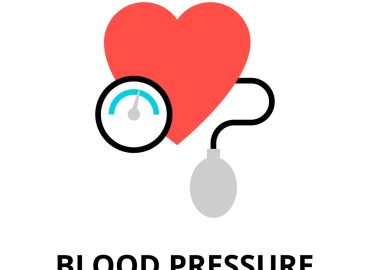The Importance of Liver Health Screenings for Malaysians with High Blood Pressure
The liver is an essential organ that performs many critical functions in the body, including filtering blood, producing bile, and metabolizing drugs and toxins. High blood pressure, also known as hypertension, can lead to liver damage and increase the risk of developing liver disease. This article will discuss the importance of liver health screenings for Malaysians with high blood pressure and provide tips on how to maintain a healthy liver.

Introduction
High blood pressure is a prevalent health condition in Malaysia, affecting one in three adults. It is a significant risk factor for heart disease, stroke, and kidney failure. However, many Malaysians are unaware that high blood pressure can also cause liver damage. Liver health screenings are essential for early detection of liver disease and can help prevent complications.
What is Liver Disease?
Liver disease refers to any condition that causes liver damage or reduces liver function. It can be caused by viruses, excessive alcohol consumption, obesity, and autoimmune disorders. The liver is a resilient organ that can repair itself, but if the damage is severe, it can lead to permanent scarring, or cirrhosis. Cirrhosis can cause liver failure, which is life-threatening and may require a liver transplant.
How High Blood Pressure Affects the Liver
High blood pressure can cause liver damage in several ways. Firstly, it can lead to the buildup of fat in the liver, known as nonalcoholic fatty liver disease (NAFLD). NAFLD is a common condition that affects up to 30% of adults worldwide. It is linked to insulin resistance, obesity, and high blood pressure. In some cases, NAFLD can progress to nonalcoholic steatohepatitis (NASH), a more severe form of liver disease that can cause cirrhosis.
High blood pressure can also cause damage to the blood vessels in the liver, leading to portal hypertension. Portal hypertension is a condition where the blood pressure in the liver’s portal vein becomes too high, causing the vein to enlarge and rupture. This can cause severe bleeding and is a life-threatening complication. For more information on high blood pressure , checkout our other articles where you can find out about the cause of high blood pressure in Malaysians or why blood pressure screenings are important for every age group in Malaysia.
The Importance of Liver Health Screenings
Liver health screenings are essential for early detection of liver disease. The most common liver function tests are blood tests that measure liver enzymes and other markers of liver damage. If these tests indicate liver damage, further tests may be necessary, such as an ultrasound or liver biopsy.
Screening for liver disease is particularly important for Malaysians with high blood pressure. Studies have shown that people with high blood pressure are more likely to have NAFLD and other forms of liver disease. Early detection of liver disease can help prevent complications and improve outcomes.

Tips for Maintaining a Healthy Liver
Prevention is key when it comes to liver disease. Here are some tips to help maintain a healthy liver:
1. Eat a Healthy Diet
A healthy diet is crucial for liver health. Avoid foods that are high in saturated fat, sugar, and salt. Instead, opt for a diet rich in fruits, vegetables, whole grains, and lean protein. For more info, read here.
2. Exercise Regularly
Regular exercise can help reduce the risk of liver disease by improving insulin resistance and reducing inflammation. Aim for at least 30 minutes of moderate-intensity exercise per day.
3. Limit Alcohol Consumption
Excessive alcohol consumption can cause liver damage and increase the risk of developing liver disease. Limit alcohol consumption to one drink per day for women and two drinks per day for men.
4. Maintain a Healthy Weight
Obesity is a significant risk factor for liver disease, particularly NAFLD. Maintaining a healthy weight through a healthy diet and regular exercise can help reduce the risk of liver disease.
Regular liver health screenings are crucial for early detection of liver disease. If you have high blood pressure or other risk factors for liver disease, such as diabetes or obesity, you should speak to your doctor about getting regular liver function tests. Early detection of liver disease can help prevent complications and improve outcomes.
Conclusion
In conclusion, liver health screenings are essential for Malaysians with high blood pressure. High blood pressure can cause liver damage, leading to liver disease and complications such as cirrhosis and portal hypertension. Prevention is key when it comes to liver disease, and maintaining a healthy diet, regular exercise, limiting alcohol consumption, maintaining a healthy weight, and getting regular liver health screenings can help reduce the risk of liver disease and improve outcomes.





















